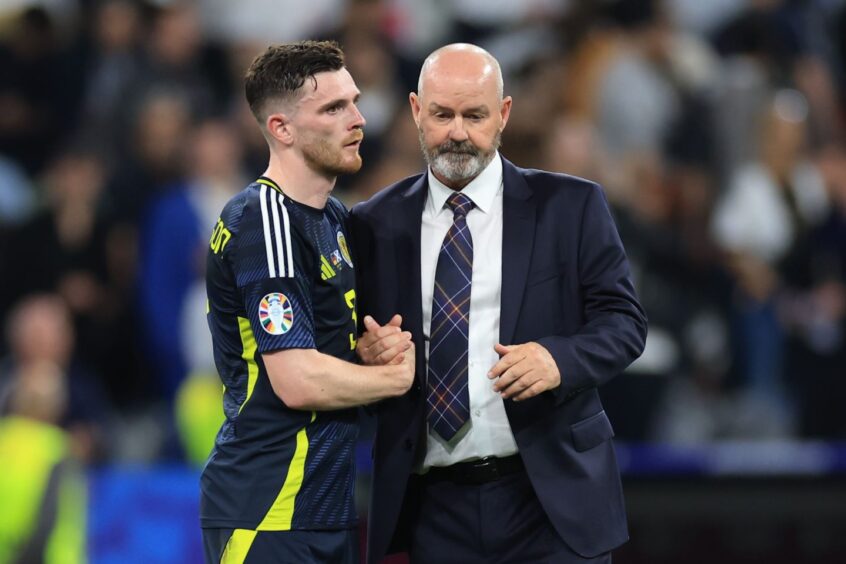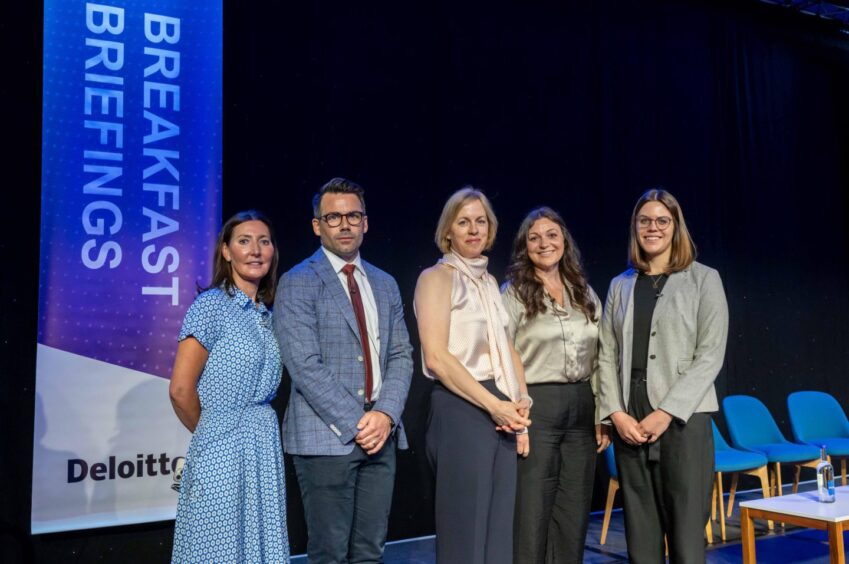
The Euros started with disappointment for Scotland fans and the energy transition risks going the same way for skilled oil workers, Global E&C’s CEO explained.
“We as an industry need the opportunity to step onto the pitch and demonstrate our talents as part of the broader team that will deliver the energy transition,” said Terry Allan, chief executive of Global E&C.
As Steve Clarke looks ahead to Scotland’s fixture against Switzerland the head coach will be looking to play his best team and that is something that the energy transition also needs to focus on.
Mr Allan continued: “In the UK, oil and gas companies are at risk of being benched in the most important match that we’ll probably ever play, one where we’re playing for the prosperity of our country and the health of our planet.”
He likened not capitalising on existing expertise to “benching McGinn, McTominay, Roberston and Tierney with no plausible replacements or other options.”
Although Scotland’s team sheet has not yet been shared for its second Euros clash, Mr Allan made the point that to achieve success the UK sector must put its best foot forward if it wants to see the success before the 2050 final whistle.
He added: “We need to play as a team and that’s just not happening when it comes to energy in the UK right not and that needs to change if we’re going to convince businesses to plan and invest with confidence.”
International competition in football and energy
Much like in this summer’s international football tournament, “competition is pretty fierce” within the energy transition as firms from all corners of the globe vie for the talents of skilled workers to roll to green energy infrastructure.
Mr Allan was speaking at Offshore Energies UK’s (OEUK) business breakfast in Aberdeen for the launch of its Economy and People report.
The Global E&C boss was on a panel that saw EnQuest’s Donna Sutherland, CNR International’s Sarah Bolson and OEUK’s Emily Taylor discuss the report’s conclusions.
EnQuest’s manager for infrastructure and new energy pointed to a plethora of big international businesses that have set up shop in the UK.
“These are global players, they’re not just home grown,” she explained “I think that gives an insight into the realities of how brilliant this industry is that we’ve actually other geographies coming in to learn from us because of how exceptional the skills and competencies that this industry in the UK offers that others envy.”
However, this is not something that is being seen by advisors to policy makers, leaving the industry to watch on from the stands.
She argued the policy advisors are being “influenced more heavily by London and by analysts who don’t necessarily understand” the skills fostered in the UK’s energy hubs.
She said the solution to this issue is “something we haven’t done yet,” giving advisors insights into the “realities of what we deliver.”
Ms Sutherland shared her experience of London, Edinburgh and Aberdeen not communicating.
“We never give each of these silos transparency of what each of us individually achieved to make, holistically, the energy industry that exists within the UK.”
Policy advisors need industry team huddle
Following the Labour and Conservative manifestos getting published last week, the industry saw one side vowing to bring an end to oil and gas licensing while the other laid out plans for annual rounds.
Tax has also been a point of contention as Labour looks to kick the energy profits levy into extra time by extending the controversial fiscal policy to the end of the next parliament.
Ms Sutherland told attendees: “I think the UK is woeful, currently, in being able to meet the legislative emission reduction targets.” She added that industry needs to work with the government and provide its insights to better inform policy makers.
Uniting under the same gameplan
Much like how the Tartan Army has united behind Scotland’s national team as it looks to achieve Euros success, the industry must do the same, panellists argued.
CNR International decommissioning project engineer Sarah Bolson called for the industry to bring its people with it throughout the energy transition.
She said: “This is a message for politicians but also for all of us, bring people along with you.
“I was fortunate enough to sit in on a breakfast briefing during my first year as an undergraduate and we’re sat here talking about the UK economy, we’re talking about some pretty macro outlooks and I sat there thinking what can I do? And I think bringing people along with you is something that absolutely everyone can do.
“If you’re a graduate, if you’re new in, can you support an intern? If you’re moving up within your career, who is around you that you can bring with you?”
As for political parties, the message was clear from OEUK’s NSTD programme manager Emily Taylor: “Work with us.”
It’s almost full time on the general election but there’s still time for industry engagement, Ms Taylor discussed.
“We know what we are doing, and we are very good at what we do and it’s having the trust in us to do what we do best.”
Recommended for you


 © Supplied by Pierre Teyssot/Actio
© Supplied by Pierre Teyssot/Actio © Supplied by Michal Wachucik/ Abe
© Supplied by Michal Wachucik/ Abe © Supplied by Martin Rickett/PA Wi
© Supplied by Martin Rickett/PA Wi